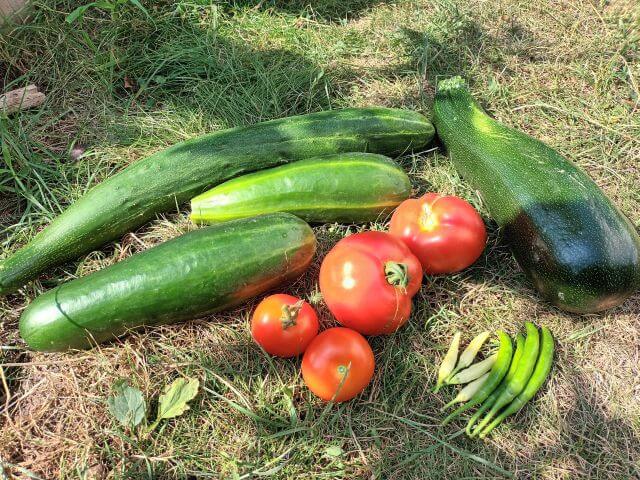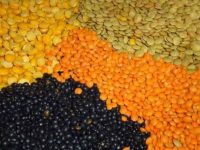Locally grown foods/ crops are produced and procured within an area. The concept of the local area might vary from one person to another. It might refer to a country for one, a county for another. The so-called locavores may put across a measurable distance from the farm to the table.
Sustainable products are grown, keeping in mind the environmental impacts. The practices under sustainable farming involve sustainable usage of resources, reducing the emission of greenhouse gasses, and more. It also reduces the negative effect of farming on the environment.
Organic farming means producing crops, animal products, and others using no artificial chemical fertilizers and pesticides, genetically modified species, growth-inducing steroids, or other chemicals. It aims at enhancing the health and productivity of interdependent communities of humans, animals, and the environment.
A food production system that produces locally, sustainably, and organically will conserve the environment and benefit the community socially and economically.

Why is locally grown, sustainable, and organic food a better choice?
Firstly, choosing organic means the absence of hazardous chemicals in your food. It is healthier plus more nutritious, as per a couple of scientific evidence.
When a farmer sells the produce locally, he need not worry about its packing, shipping, and storage. You can rely on such farmers since they are oriented towards producing nutritious and tastier crops. When you choose local, you can be sure of its freshness and less emission in the form of transportation.
Sustainably grown crops will enable water conservation, soil quality enhancement, free-ranging cattle, renewable sources of energy, plus recyclable/ biodegradable packaging materials.
How does a community benefit from locally grown, sustainable, and organic food?
Let’s not forget how hard a farmer’s life is! So by buying locally produced food, consumers will fuel the small farmers’ economy. The people/ farmers within the community will benefit when individuals choose to buy local, sustainable food. Direct selling of produce at a farmer’s market will cut the intermediaries. It will result in better monetary value for their crops to the farmers. The produce will serve a community seeking fresher food, with hardly any transit.
How does locally grown, sustainable, and organic food enrich the environment?
Agricultural activities contribute to about 1/3rd of the global greenhouse gas emissions. The anticipation is that the food output will apparently increase two folds by 2050. The primary reason for this is land acquisition and conversion. The systems of production, transportation, and consumption of food catering to the world’s 7.9bn population are highly carbon-intensive.
It’s not practical to stop the production at any scale. The methods can surely change, and we as consumers must make way for that. Sustainably produced local organic farming will conserve the environment in many ways. Sustainable practices conserve water, use renewable energy sources and reduce emission levels. Methods such as crop rotation, reclaimed water usage, vertical planting, and drought-tolerant crop species will keep up the quality of the soil. It will reduce the pollution of water channels, exploitation of the cattle, etc.
Even a study published in 2002 has highlighted how organic farming methods can be more beneficial to soil fertility and biodiversity than conventional methods.

Why should one avoid conventionally grown food?
Large-scale conventional farming is polluting the environment in various ways. It also makes way for soil erosion and reduced soil quality in many parts of the world. Pesticides used in these methods indirectly harm other organisms in the environment, such as birds, fish, bees, and algae.
The chemicals have been causing high-level surface and groundwater contamination. It washes into the water bodies and causes eutrophication. The low oxygen levels at the dead zones in the acidic channels kill aquatic life.
A Geological Service study conducted in the US has found that fish and water samples contained one or more pesticides. You won’t even believe that the contaminated samples turned out to be 90 percent of all.
How interchangeable are the phrases local, sustainable, and organic produce?
Individually we have seen what the phrases mean. We, however, cannot use them interchangeably.
Local produce can definitely be partially sustainable since it avoids transit, but it may or may not be organic.
Sustainable produce will most probably be local. It will also be organic since sustainability advocates soil quality and not degrading the environment.
Organic means avoiding any chemicals or non-biodegradable additions to the crops and soil. Such methods of farming may or may not be sustainable or even local. Organic foods have many loopholes of their own.
So, choose your products quite mindfully and carefully.

How to choose something local, sustainable, and organic?
As a consumer, always look for seasonal produce. Consume the fruits and vegetables grown in the geographical region during that particular season. It will bring down the demand for non-seasonal varieties. Otherwise, they will have to be imported to fulfill the market demands.
Shop from a local farmer’s market, the most sustainable and local way to go about it. It will allow you to interact and connect with the community farmers personally. It is indeed a fun and engaging way to indulge in shopping. You will also get to learn more about the product and its sustainability.
Community Supported Agriculture (CSA) is a relatively new concept but a great one. You can pick your slots for locally, freshly, organically produced food from a nearby farm. More and more communities are beginning to adopt the culture of CSA.
Consider growing your own veggies at home. You won’t know how fun it is until you try it. It won’t take much of your time and care. You can even grow them in pots and in small quantities. It is sustainable, purely local, and organic (provided the seeds aren’t genetically modified) for sure.
Support establishments and enterprises that are local and practice sustainability. It can be a local restaurant that leaves the minimum possible carbon footprint by choosing local meat, vegetables, and fruits over the shipped ones. Choose local ranchers and farmers who avoid widely used pesticides on produce and meat.
Growing healthy organic veggies yourself or buying mainly organic produce from local markets not only gives you peace of mind, you also know that everything you put in your cooking pot is free of artificial pesticides and herbicides.
- Where Are Tomatoes Native To? - August 1, 2022
- Are Organic Chickpeas Better? - July 26, 2022
- How Being Vegan Helps Climate Change - July 24, 2022




